essential oils
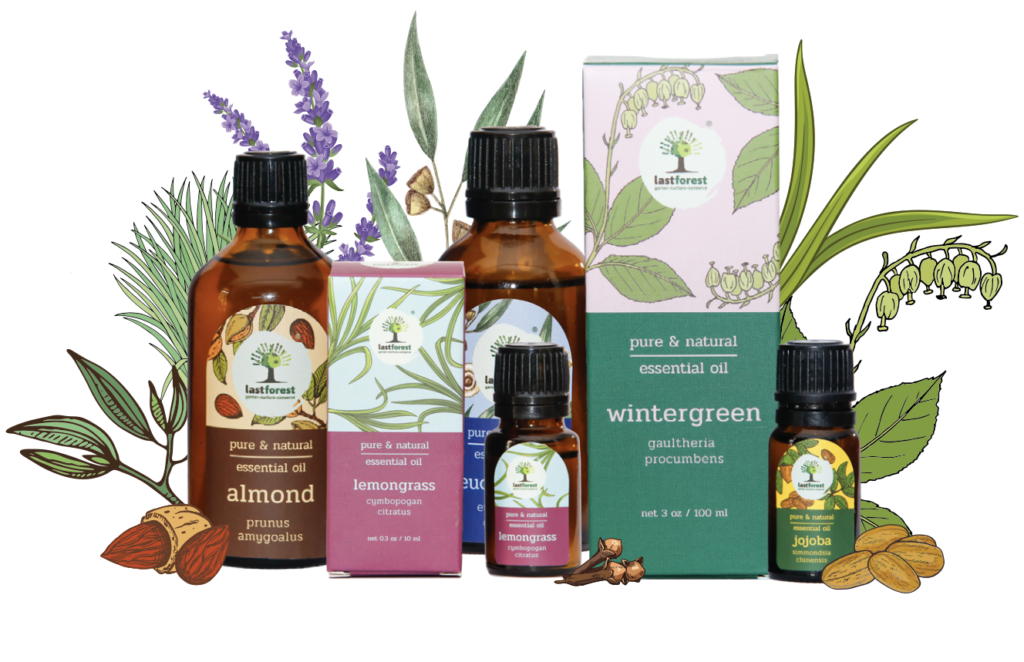
Locally produced in the Nilgiris Biosphere Reserve, our essential oils serve a variety of ailments such as body pain, cold and cough. Enhance your skin and hair, or try a natural insect repellent. Even use them for aromatherapy and relaxation!
Last Forest’s essential oils are high quality and 100% pure with no additives. Each oil provides therapeutic benefits and has multiple uses towards health.
pure & natural essential oils by last forest catalogue
FAQs about essential oils
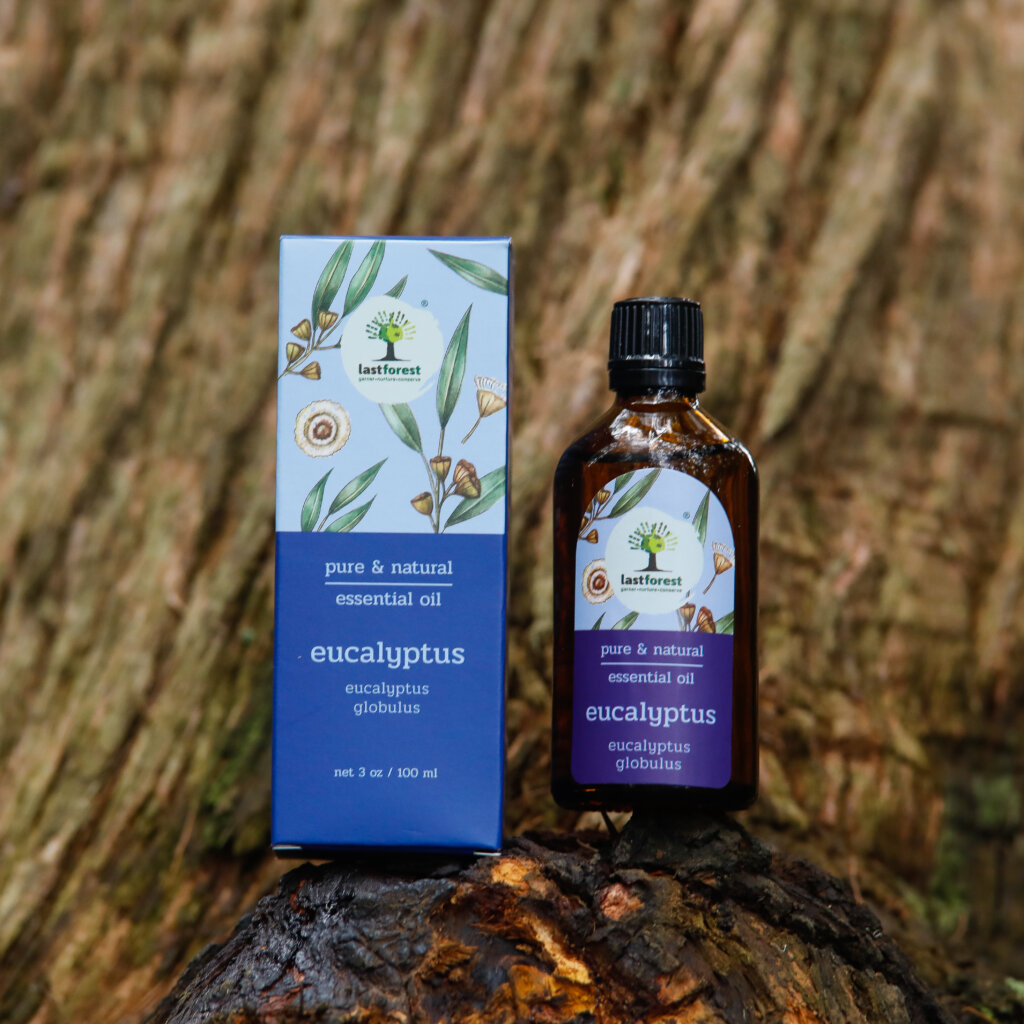
Eucalyptus Essential Oil
Eucalyptus essential oil is a concentrated oil extracted from the leaves of eucalyptus trees, primarily the Eucalyptus globulus species. It is made through steam distillation, where the leaves are subjected to high-temperature steam, and the volatile compounds are collected and condensed to form the essential oil.
The main active components of Eucalyptus essential oil are cineole (also known as eucalyptol), alpha-pinene, limonene, and camphene, among others. These compounds contribute to its characteristic aroma and potential health benefits.
Eucalyptus essential oil has a variety of applications. It is often used in aromatherapy to promote a sense of relaxation and ease respiratory congestion. It can also be used topically (properly diluted) to relieve muscle and joint discomfort or added to cleaning products for its antimicrobial properties.
When used properly and with the correct dilution, Eucalyptus essential oil is generally considered safe for topical use. However, it is potent and can cause skin irritation or allergic reactions in some individuals. Always perform a patch test before applying to larger areas of the skin.
Ingesting essential oils generally not recommended without the supervision of a qualified healthcare professional. Eucalyptus oil can be toxic if ingested in large quantities, and it is not intended for culinary use.
Pregnant and nursing women, children, and individuals with certain medical conditions (such as epilepsy or high blood pressure) should exercise caution and seek advice from a healthcare professional before using Eucalyptus essential oil.
Eucalyptus essential oil can be toxic to pets, especially cats. It’s important to keep essential oils and diffusers out of reach of animals. If you have pets, consult with a veterinarian before using any essential oils around them.





Almond Essential Oil
Almond essential oil is a natural oil extracted from the kernels of sweet almonds (Prunus amygdalus var. dulcis). It is obtained through a process of cold pressing or steam distillation, resulting in a concentrated liquid with a distinct nutty aroma. Almond essential oil is widely used in aromatherapy, skincare, and hair care due to its numerous beneficial properties.
The primary chemical constituents of Almond essential oil include monounsaturated fatty acids like oleic acid, linoleic acid, and palmitic acid. It also contains vitamins (A, B, and E), proteins, and minerals like zinc and magnesium.
There are two main types of Almond essential oil: Sweet Almond Oil and Bitter Almond Oil. Sweet Almond Oil is derived from the kernels of sweet almonds and is commonly used in cosmetics and aromatherapy. Bitter Almond Oil, on the other hand, is obtained from bitter almonds and contains a compound called hydrocyanic acid, making it toxic and unsuitable for direct use. Therefore, Bitter Almond oil is typically used in the food and flavoring industries with appropriate safety precautions.
Almond essential oil is known for its excellent skin-nourishing properties. It helps moisturize and soothe dry, irritated skin, reduces the appearance of fine lines and wrinkles, and can promote a more youthful complexion. Additionally, it may aid in reducing dark circles and puffiness around the eyes.
Yes, Almond essential oil can be beneficial for hair care. It helps nourish and strengthen hair strands, adds shine, and may reduce hair breakage and split ends. Massaging the scalp with Almond oil can also improve blood circulation and promote healthier hair growth.
In general, Sweet Almond essential oil is safe for most skin types, including sensitive skin. However, it’s always best to perform a patch test before applying it to a larger area. Individuals with nut allergies should avoid using Almond oil.
Almond essential oil can be used in aromatherapy by diffusing it in a diffuser or vaporizer. The sweet, nutty scent creates a calming and comforting ambiance, promoting relaxation and stress relief.
No, Almond essential oil should not be ingested. Bitter Almond oil contains toxic compounds and should never be consumed. Sweet Almond oil used for culinary purposes is different from Almond essential oil and is considered safe for consumption in appropriate quantities.
To preserve its potency and extend shelf life, store almond essential oil in a cool, dark place away from direct sunlight and heat. Ensure the bottle is tightly sealed to prevent oxidation.
Pregnant or nursing women should consult their healthcare provider before using Almond essential oil, just as with any essential oil or new product.
Sweet Almond essential oil is generally considered non-comedogenic, meaning it’s unlikely to clog pores and cause acne. However, as with any product, individual reactions may vary, so it’s best to test it on a small area first.
Almond essential oil is believed to have emollient properties that can help improve skin elasticity and possibly reduce the appearance of stretch marks when used consistently over time.
Pure almond essential oil is derived from plant sources and is considered vegan. To ensure it’s cruelty-free, look for products from brands that don’t test on animals.
Yes, Almond essential oil blends well with various other essential oils, such as Lavender, Rose, Chamomile, and Ylang-Ylang. Blending oils can create unique scents and enhance the therapeutic benefits.
Avoid using almond essential oil if you have a known allergy to nuts. Conduct a patch test before using almond oil on a larger area of the skin. Store the oil away from children and pets. For internal use, consult a qualified healthcare professional or aromatherapist. If irritation occurs, discontinue use and seek medical advice.
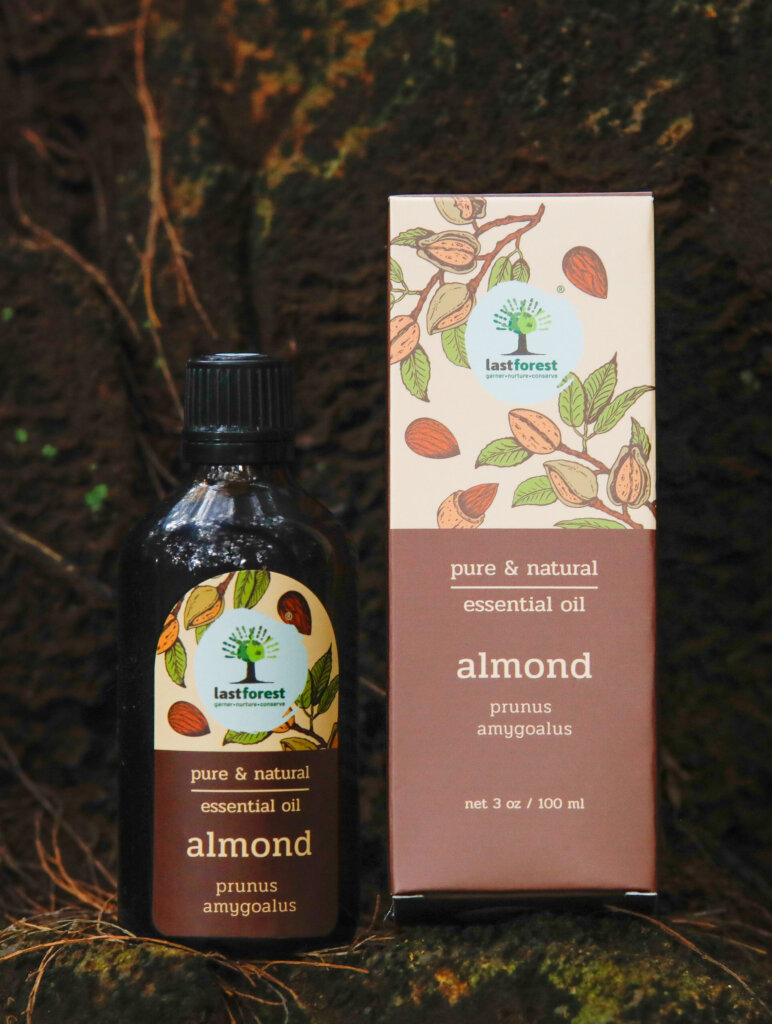
(Note: This FAQ database is for informational purposes only and does not replace professional medical advice. Always consult a qualified healthcare practitioner or aromatherapist before using essential oils for therapeutic purposes.)





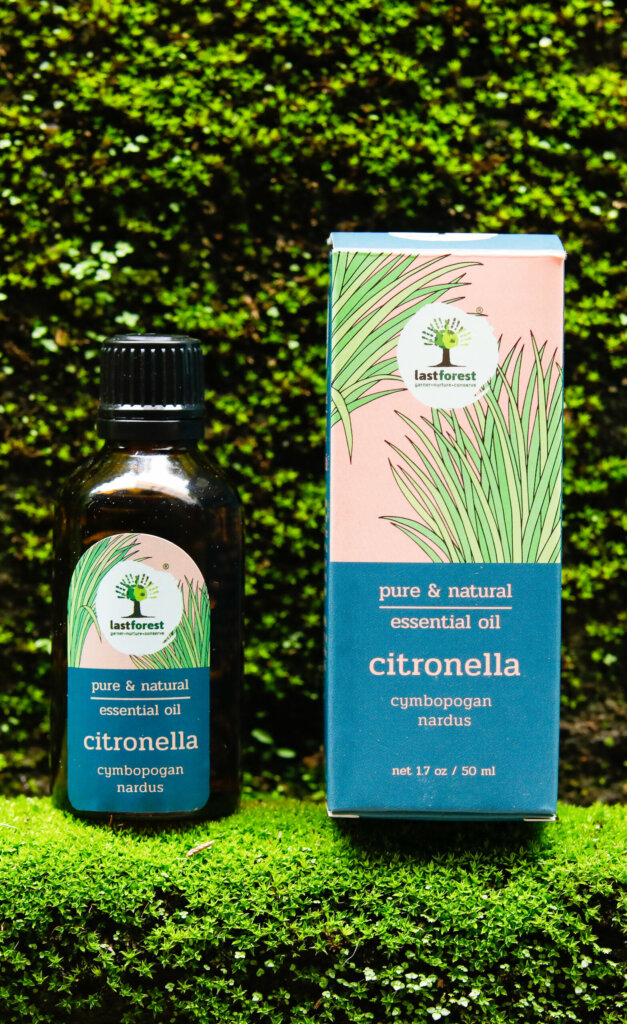
(Note: This FAQ database is for informational purposes only and does not replace professional medical advice. Always consult a qualified healthcare practitioner or aromatherapist before using essential oils for therapeutic purposes.)
Citronella Essential Oil
Citronella essential oil is a volatile oil extracted from the leaves and stems of Cymbopogon nardus or Cymbopogon winterianus, commonly known as Citronella grass. It has a refreshing, lemony scent and is widely used in aromatherapy, skincare products, and as a natural insect repellent.
Citronella essential oil is typically extracted through steam distillation. Fresh or dried citronella grass is placed in a distillation apparatus, and steam is passed through the plant material to release the volatile oil. The steam containing the oil is then cooled and condensed, separating the essential oil from the water.
The primary chemical components of Citronella essential oil include citronellal, geraniol, citronellol, and limonene. These compounds contribute to its characteristic aroma and therapeutic properties.
Citronella essential oil is known for its various therapeutic properties, including:
- Insect Repellent: It acts as a natural insect repellent and is commonly used to keep mosquitoes and other flying insects at bay.
- Antiseptic: Citronella oil possesses antiseptic properties that can help disinfect wounds and protect against infection.
- Antifungal: It may aid in combating fungal infections and promoting healthy skin.
- Aromatherapy: Citronella oil is used in aromatherapy to alleviate stress, anxiety, and promote relaxation.
Citronella essential oil can be used as a natural insect repellent by diluting a few drops of the oil in a carrier oil (such as coconut oil) and applying it to exposed skin. Alternatively, you can add a few drops to a diffuser to keep insects away from your living space.
Citronella oil is generally safe for topical use when properly diluted. However, some individuals may be sensitive to the oil and could experience skin irritation. It is recommended to perform a patch test before applying it to a larger area. Additionally, avoid ingesting Citronella oil as it may cause adverse reactions. Pregnant and nursing women should consult their healthcare provider before using essential oils.
No, Citronella essential oil should not be ingested. Ingesting essential oils can be toxic and may lead to serious health issues. Always use essential oils for aromatic or topical purposes only.
Citronella essential oil should not be used on cats or dogs. Cats are particularly sensitive to essential oils, including citronella, as they lack certain liver enzymes needed to metabolize the compounds. In dogs, Citronella oil may cause skin irritation or other adverse reactions. Instead, use pet-safe insect repellents specifically formulated for animals.
Pregnant women should avoid using citronella essential oil without consulting their healthcare provider. Some essential oils, including citronella, may not be suitable during pregnancy due to potential risks.
Like all essential oils, citronella oil may cause allergic reactions or skin irritation in some individuals. It is essential to dilute the oil properly and perform a patch test before using it on a larger area of the skin.
Citronella essential oil is considered non-phototoxic. This means it is unlikely to cause adverse reactions when exposed to sunlight.
Citronella essential oil blends well with many other essential oils, including lavender, eucalyptus, peppermint, and lemongrass. Blending allows you to create personalized aromatherapy blends or insect repellents with enhanced properties.
To preserve its potency and extend its shelf life, store citronella essential oil in a cool, dark place, away from direct sunlight and heat. Keep the bottle tightly closed when not in use.
Before using citronella essential oil or any other essential oil, conduct a patch test to check for skin sensitivity. Keep the oil out of reach of children and pets. Consult a qualified aromatherapist or healthcare professional if you have any underlying health conditions or concerns. Follow proper dilution guidelines to avoid adverse reactions.
Citronella essential oil is not typically used for anxiety or sleep-related purposes. Instead, oils like Lavender or Chamomile are more commonly recommended for relaxation and sleep improvement.




Clove Essential Oil
Clove essential oil is a concentrated oil extracted from the dried flower buds of the clove tree. It is known for its strong, spicy aroma and numerous health benefits.
Clove essential oil is typically extracted through steam distillation of the dried flower buds of the clove tree.
Clove oil has various uses, including providing pain relief, treating dental issues, reducing inflammation, improving digestion, and repelling insects. It is also used in aromatherapy.
Clove oil is potent and should be diluted with a carrier oil before applying it to the skin. Undiluted clove oil can cause skin irritation.
Clove oil can be ingested in very small amounts and under the guidance of a healthcare professional. It is often used as a flavoring agent in food.
Clove oil is believed to have antibacterial, anti-fungal, anti-inflammatory, and antioxidant properties. It may help with toothaches, sore muscles, and digestive issues.
Yes, Clove oil is commonly used for toothaches and gum pain due to its analgesic and antiseptic properties. It can provide temporary relief, but dental issues should be addressed by a dentist.
Potential side effects include skin irritation, allergic reactions, and digestive discomfort if ingested in large amounts. It should be used with caution and in moderation.
Clove oil is generally not recommended for use on children’s skin or for internal use in children, as it can be too potent and may cause adverse reactions.
Yes, Clove oil is effective at repelling insects and can be used in natural insect repellent formulations.
Clove oil should be stored in a cool, dark place, away from direct sunlight. Keep the bottle tightly closed to prevent oxidation.
Yes, clove oil can be used sparingly as a flavoring agent in cooking, but it should be diluted, as it is highly concentrated.
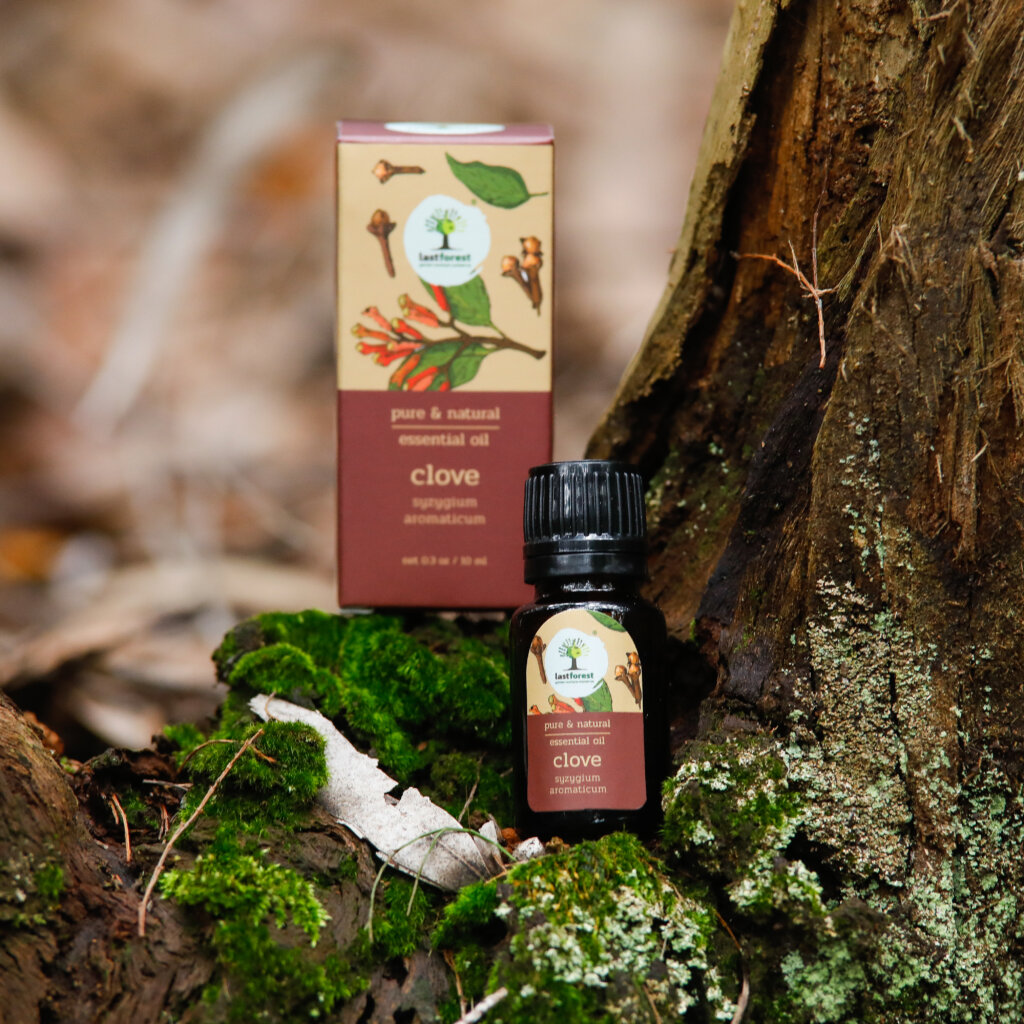
(Note: This FAQ database is for informational purposes only and does not replace professional medical advice. Always consult a qualified healthcare practitioner or aromatherapist before using essential oils for therapeutic purposes.)





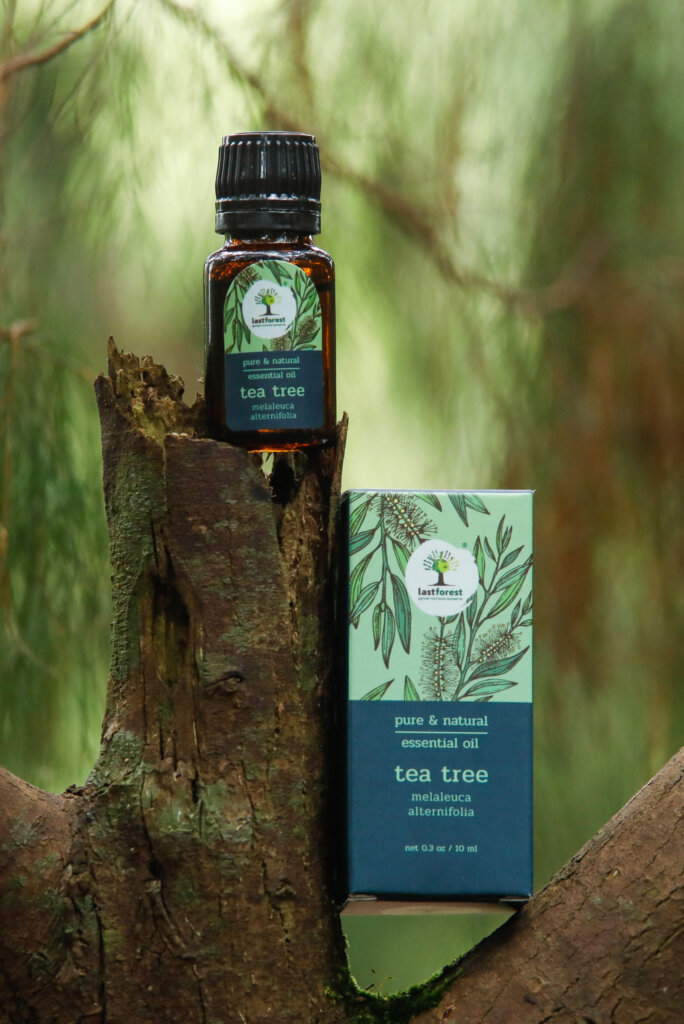
(Note: This FAQ database is for informational purposes only and does not replace professional medical advice. Always consult a qualified healthcare practitioner or aromatherapist before using essential oils for therapeutic purposes.)
Tea Tree Essential Oil
Tea Tree essential oil, also known as melaleuca oil, is an essential oil derived from the leaves of the Tea Tree (Melaleuca alternifolia), which is native to Australia. It is known for its numerous therapeutic properties.
Tea tree essential oil is typically produced through steam distillation of the leaves and twigs of the Tea Tree. The oil is extracted from the plant material to capture its potent aroma and therapeutic compounds.
Tea Tree oil has a fresh, medicinal scent with hints of camphor. Some describe it as slightly spicy and earthy.
The primary active compounds in tea tree oil are terpinen-4-ol, cineole, and various other terpenes. Terpinen-4-ol is responsible for most of its antimicrobial properties.
Tea Tree oil has a wide range of uses, including skincare for acne and fungal infections, scalp and hair care, wound disinfection, and as an ingredient in homemade cleaning products.
Tea Tree oil is generally safe for topical use when properly diluted. It should be diluted with a carrier oil, as undiluted tea tree oil can be too harsh for the skin and may cause irritation.
No, Tea Tree oil should not be ingested. It can be toxic if swallowed and should only be used externally or inhaled in small quantities through steam inhalation.
Tea tree oil can be toxic to pets, especially cats and small dogs. It’s best to avoid using it around animals, and if accidental exposure occurs, seek veterinary attention.
Yes, Tea Tree oil is a popular natural remedy for acne. It has antibacterial and anti-inflammatory properties that can help reduce acne breakouts when diluted and applied topically.
Yes, Tea Tree oil is often used to treat dandruff and itchy scalp. It can help reduce scalp irritation and control fungal growth when added to shampoos or diluted with a carrier oil and massaged into the scalp.
Tea Tree oil may help treat nail fungus due to its anti-fungal properties. Apply a diluted solution to the affected area regularly for several weeks for potential improvement.
Some individuals may be sensitive to tea tree oil and experience skin irritation or allergic reactions. It’s essential to do a patch test before using it on a larger area of skin.
Properly stored Tea Tree oil can have a shelf life of 2-3 years or even longer. Store it in a cool, dark place, away from direct sunlight and extreme temperatures



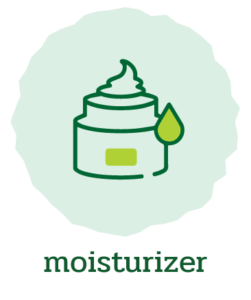

Lemongrass Essential Oil
Lemongrass essential oil is a concentrated oil extracted from the leaves and stems of the lemongrass plant (Cymbopogon citratus). It has a strong, citrusy aroma and is widely used in aromatherapy and natural health remedies.
The primary components of Lemongrass essential oil are citral, geraniol, limonene, and citronellal. These compounds give it its distinctive scent and therapeutic properties.
Lemongrass essential oil is known for its various benefits, including:
- Relief from stress and anxiety: It has calming properties that can help reduce stress and anxiety.
- Pain relief: It can be used topically to relieve muscle and joint pain.
- Insect repellent: Lemongrass oil is a natural insect repellent.
- Anti-fungal properties: It may help treat fungal infections
- Digestive aid: It can aid in digestion and relieve stomach discomfort.
Lemongrass oil can be used in several ways:
- Aromatherapy: Add a few drops to a diffuser to enjoy its aroma.
- Topical application: Dilute with a carrier oil and apply to the skin.
- Inhalation: Inhale directly from the bottle for quick relief from nausea or stress.
- Baths: Add a few drops to a warm bath for relaxation.
Generally, Lemongrass oil is safe when used properly. However, it can cause skin irritation in some individuals. Always dilute it with a carrier oil before applying to the skin and do a patch test if you have sensitive skin. Avoid contact with eyes and mucous membranes.
Lemongrass oil is not typically recommended for internal use. It’s best used externally or in aromatherapy. If you wish to use it internally, consult with a qualified aromatherapist or healthcare professional.
While it’s generally safe, some people may experience skin irritation or allergic reactions. It’s important to use it in moderation and discontinue use if you notice any adverse reactions.
Yes, lemongrass oil is sometimes used in hair care products for its ability to promote a healthy scalp and hair growth. You can add a few drops to your shampoo or conditioner.
Use caution when using essential oils around children and pets. It’s often best to consult with a healthcare professional or veterinarian for guidance on safe usage.
Lemongrass oil is generally safe, but if you are taking medications or have a medical condition, consult with a healthcare professional before using it, as it could potentially interact with certain drugs.
Store Lemongrass oil in a cool, dark place, away from direct sunlight and heat. Keep the bottle tightly sealed to prevent oxidation and evaporation.
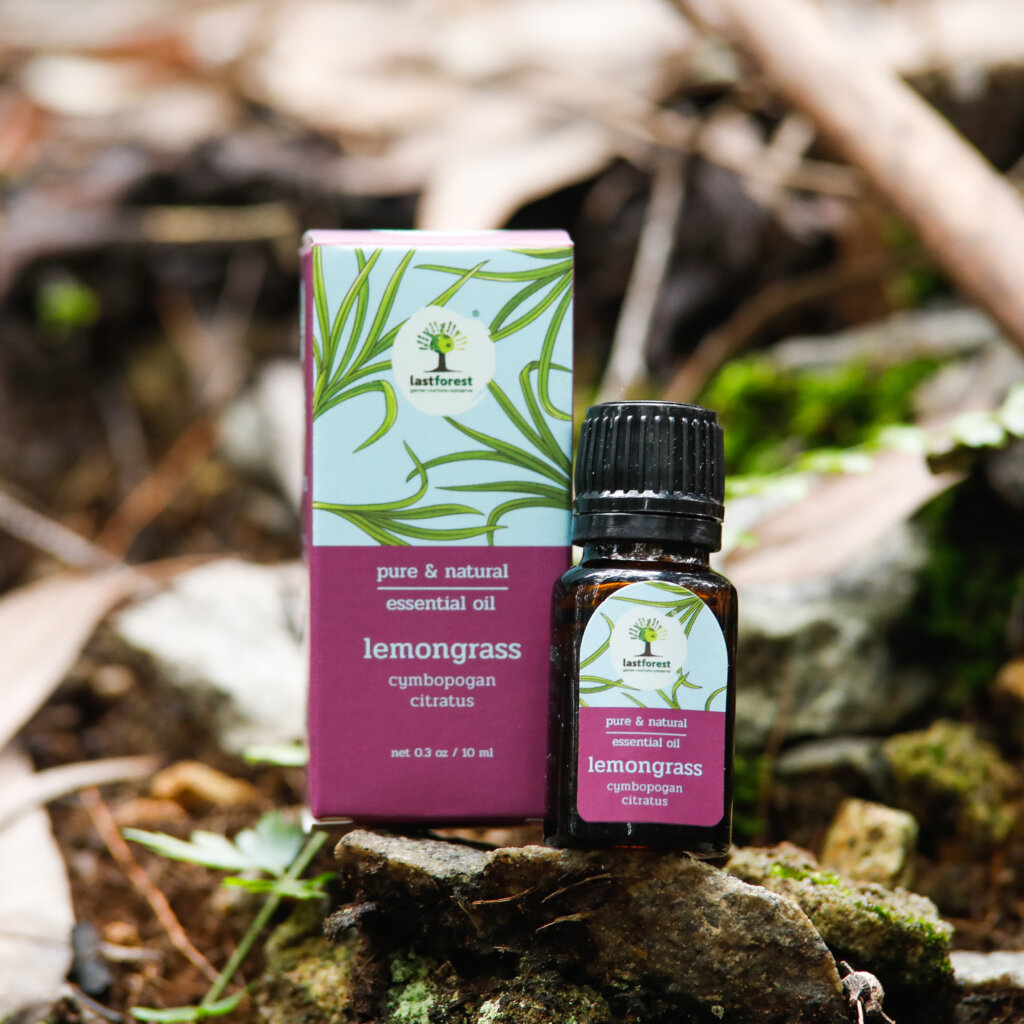
(Note: This FAQ database is for informational purposes only and does not replace professional medical advice. Always consult a qualified healthcare practitioner or aromatherapist before using essential oils for therapeutic purposes.)






(Note: This FAQ database is for informational purposes only and does not replace professional medical advice. Always consult a qualified healthcare practitioner or aromatherapist before using essential oils for therapeutic purposes.)
Lavender Essential Oil
Lavender essential oil is a concentrated extract derived from the lavender plant’s flowers. It’s known for its pleasant aroma and numerous therapeutic properties.
Lavender essential oil has a sweet, floral, and slightly herbaceous scent with soothing and calming notes.
Lavender essential oil is typically produced through steam distillation, where steam is passed through lavender flowers to extract the essential oil.
The primary chemical constituents of lavender essential oil include linalool, linalyl acetate, camphor, and 1,8-cineole, among others.
Lavender oil is known for its calming and soothing properties, promoting relaxation, reducing anxiety, improving sleep, and providing relief from headaches and muscle tension.
Lavender oil can be used topically, inhaled, or added to a diffuser. It’s commonly used in massage oils, bath salts, and skincare products.
Lavender oil is generally safe for most people when properly diluted. However, it’s recommended to perform a patch test before applying it to larger areas of the skin.
While Lavender oil is used in culinary applications, it’s crucial to use food-grade essential oil, and ingestion should be done with caution. Consult a qualified aromatherapist or healthcare professional before ingesting.
Lavender oil has been used traditionally for its potential medicinal benefits, such as antimicrobial and anti-inflammatory properties. It’s also used for minor burns and insect bites.
Yes, Lavender oil is often used to improve sleep quality. It can be diffused in the bedroom or applied to the pillowcase for its calming effects.
Pregnant or nursing women, children, and individuals with specific medical conditions should consult a healthcare professional before using lavender oil. It can sometimes cause skin irritation in sensitive individuals.
Lavender oil is generally safe, but it’s advisable to consult a healthcare professional if you’re taking specific medications, as there could be potential interactions.
Lavender oil should be stored in a cool, dark place, away from direct sunlight and heat. It should be tightly sealed to prevent oxidation.
Lavender oil is renowned for its stress-reducing and anxiety-relieving properties. It can be used in aromatherapy to promote relaxation.





Jojoba Essential Oil
Jojoba essential oil is actually a misnomer. Jojoba oil is not an essential oil in the traditional sense. It’s a liquid wax extracted from the seeds of the jojoba plant (Simmondsia chinensis). However, it is commonly referred to as “jojoba oil” rather than “jojoba essential oil” because it doesn’t undergo the steam distillation or cold-pressing processes typical of essential oil extraction.
Jojoba oil is renowned for its skin benefits. It’s known to moisturize, nourish, and protect the skin. It’s also non-comedogenic, making it suitable for various skin types. It can help with acne, dryness, and even reduce the appearance of wrinkles.
Yes, Jojoba oil is generally safe for sensitive skin. It’s considered hypoallergenic and is less likely to cause skin reactions compared to some other oils. However, it’s always recommended to do a patch test to ensure it suits your skin.
Yes, Jojoba oil can be used on oily skin. It’s unique in that it closely resembles the natural sebum produced by our skin. When applied, it can help balance oil production, potentially reducing excess oiliness.
Jojoba oil is excellent for hair care. You can apply it directly to your hair and scalp, leave it on for 20-30 minutes, and then wash it out. It helps moisturize the scalp, prevent dandruff, and add shine to your hair.
Yes, Jojoba oil is safe for use on the face. In fact, it’s a popular ingredient in many skincare products, including moisturizers and cleansers. It’s known for its moisturizing and non-comedogenic properties.
Yes, Jojoba oil can be used as a carrier oil for essential oils. It’s an excellent carrier oil because it’s stable, has a long shelf life, and doesn’t have a strong scent that would interfere with the aroma of essential oils.
Yes, Jojoba oil is an effective natural makeup remover. It can dissolve makeup, including waterproof products, and is gentle on the skin.
Jojoba oil should be stored in a cool, dark place, away from direct sunlight and heat. It has a relatively long shelf life, but proper storage can help extend its usability.
Jojoba oil is considered a sustainable skincare ingredient because it’s derived from the jojoba plant, which is native to arid regions and is relatively easy to cultivate without the need for large amounts of water or pesticides.
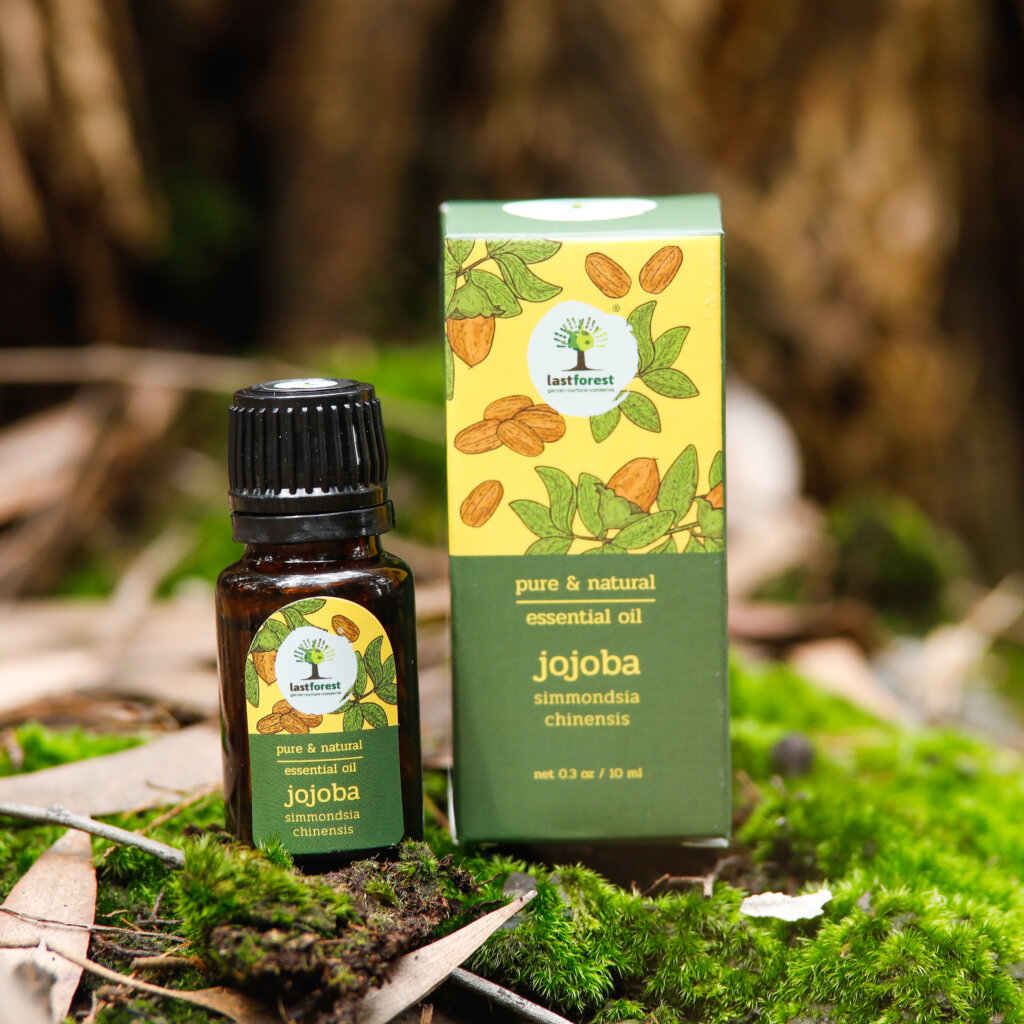
(Note: This FAQ database is for informational purposes only and does not replace professional medical advice. Always consult a qualified healthcare practitioner or aromatherapist before using essential oils for therapeutic purposes.)



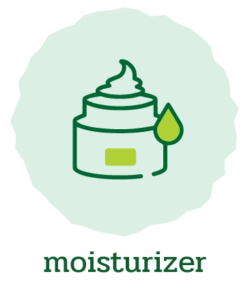

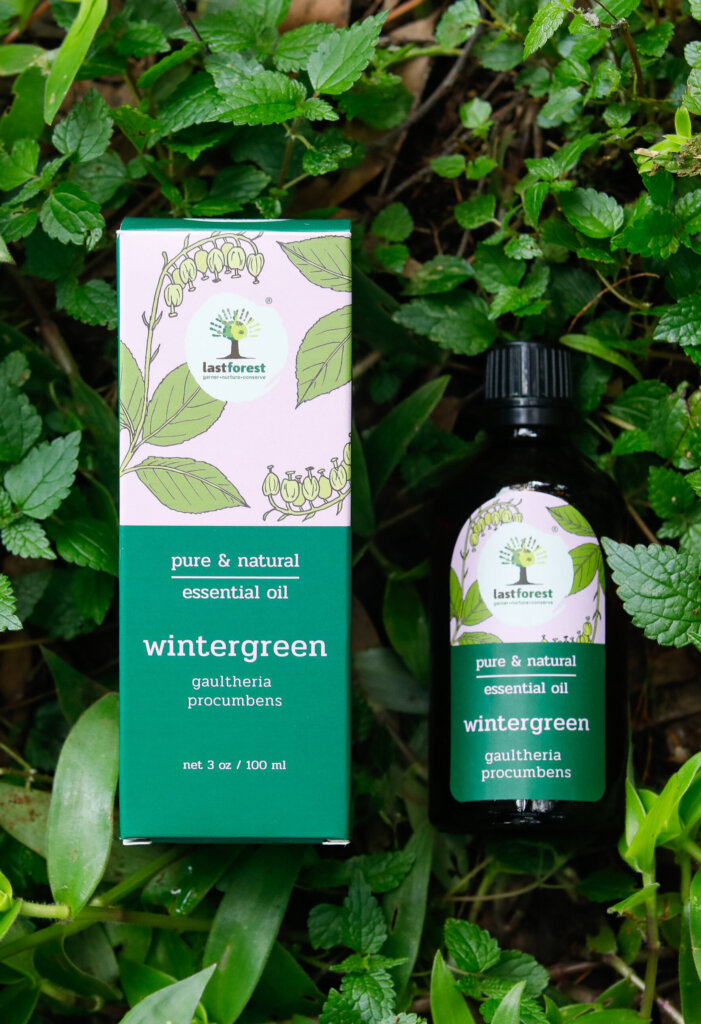
(Note: This FAQ database is for informational purposes only and does not replace professional medical advice. Always consult a qualified healthcare practitioner or aromatherapist before using essential oils for therapeutic purposes.)
Wintergreen Essential Oil
Wintergreen essential oil is derived from the leaves of the wintergreen plant, scientifically known as Gaultheria procumbens. It is a small evergreen shrub native to North America. The oil is obtained through a steam distillation process and is known for its distinctive minty and sweet aroma.
The primary active component of wintergreen essential oil is methyl salicylate, which can constitute up to 98% of the oil. This compound gives the oil its characteristic scent and is also responsible for its analgesic and anti-inflammatory properties.
Wintergreen essential oil has several uses, including:
Pain relief: It is commonly used topically to alleviate muscular and joint pain, thanks to its analgesic properties.
Anti-inflammatory: Wintergreen oil may help reduce inflammation when applied to affected areas.
Aromatherapy: The refreshing scent of wintergreen oil can be used in aromatherapy to uplift the mood and promote relaxation.
Respiratory support: Inhaling wintergreen oil may offer respiratory benefits and provide relief from congestion.
Insect Repellent: The oil’s strong aroma can be used to deter insects.
Wintergreen oil is potent and should be used with caution. It contains high concentrations of methyl salicylate, which can be toxic if ingested in large quantities. It is not recommended for internal use. Always dilute wintergreen essential oil with a carrier oil before applying it to the skin to avoid irritation or adverse reactions. As with any essential oil, it’s essential to do a patch test before using it on a larger area of the body.
No, wintergreen essential oil should not be ingested due to its high methyl salicylate content, which can be harmful and even fatal if consumed in excessive amounts. If you’re looking for an edible mint flavor, consider using peppermint or spearmint essential oil instead.
To maintain its potency and aroma, store wintergreen essential oil in a cool, dark place, away from direct sunlight and heat. Make sure to keep it out of reach of children and pets. When stored properly, wintergreen oil can have a shelf life of up to three years.
Yes, wintergreen essential oil blends well with various other essential oils. Some popular combinations include:
Peppermint oil: for an extra cooling sensation
Lavender oil: for a soothing and relaxing blend
Eucalyptus oil: for respiratory support
Lemon oil: for a fresh and uplifting aroma.
Undiluted Wintergreen essential oil can be irritating to the skin and may cause redness or a burning sensation. Always dilute it with a carrier oil, such as Coconut oil or Jojoba oil, before applying it topically. If you experience any adverse reactions, discontinue use. immediately and consult a healthcare professional.
No, wintergreen essential oil is not safe for pets, especially cats and dogs. Animals can be more sensitive to essential oils, and ingestion or exposure to wintergreen oil can lead to toxicity. Always consult a veterinarian before using any essential oil around your pets.
Wintergreen essential oil may offer some pain relief and other benefits, but it should not be used as a replacement for medical treatment. If you have a medical condition, consult a qualified healthcare professional for appropriate advice and treatment.
To use Wintergreen essential oil for pain relief, dilute it with a carrier oil and apply it topically to the affected area. Massage the oil gently into the skin until absorbed. Alternatively, you can add a few drops of wintergreen oil to a warm bath for a relaxing and soothing experience.
Yes, Wintergreen essential oil can be diffused using an aromatherapy diffuser. This method can help freshen the air and promote a sense of well-being. However, it is advisable to use the oil in moderation, as its strong aroma can be overwhelming in high concentrations.
No, wintergreen essential oil should not be used in cooking or ingested, as it contains high levels of methyl salicylate, which can be toxic when consumed.
Wintergreen oil’s analgesic properties may provide some relief for tension headaches when applied topically in diluted form to the temples and neck. However, it’s essential to address the root cause of headaches and seek medical advice if they persist or worsen.
The antibacterial properties of wintergreen essential oil make it suitable for some cleaning applications. However, use it in small quantities, and always ensure proper ventilation when using essential oils for cleaning purposes.





